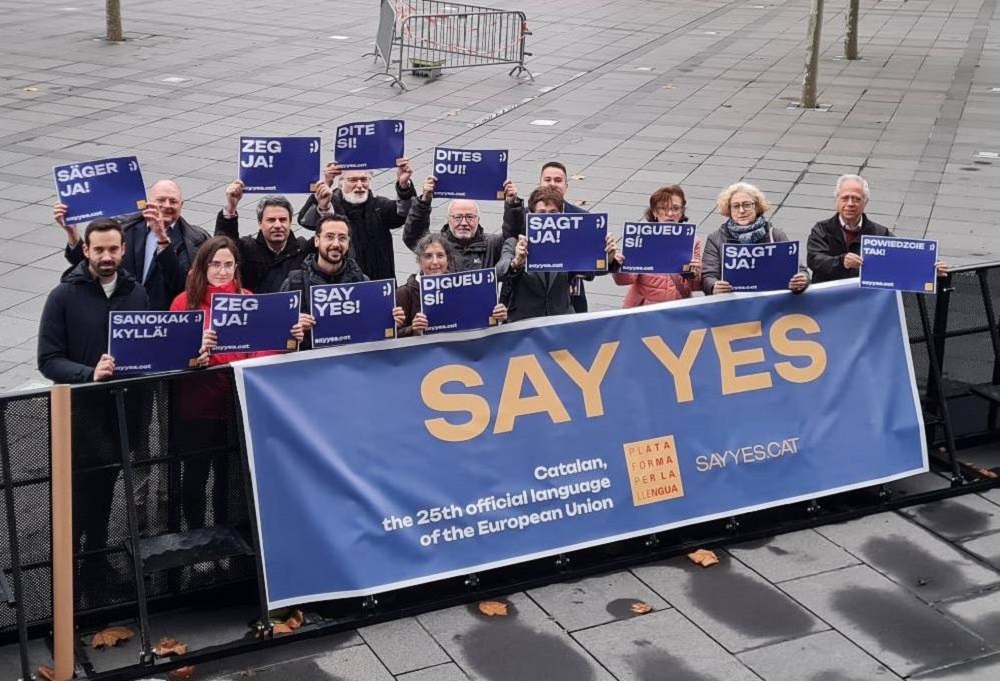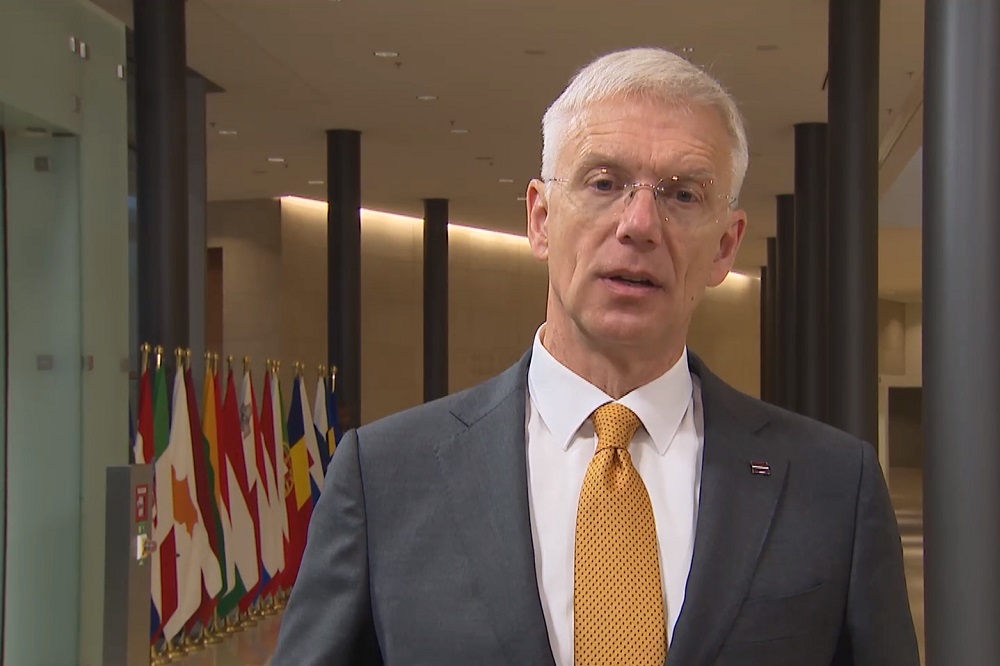Push to make Catalan, Basque and Galician official EU languages met with resistance

Luke James
A push to make Catalan, Basque and Galician official languages of the European Union has been met with unlikely resistance from a country whose language is one of the least spoken in the bloc.
The Spanish government presented detailed plans on the financial, practical and political implications of its proposal to a meeting of member states’ EU affairs ministers in Luxembourg on Tuesday.
The move was designed to address doubts expressed by some national governments about the cost implications of such a move and whether it would set a precedent in other large member states with minority languages, such as France.
But it was the foreign minister of Latvia, the country with the second smallest population in the EU, who was most outspoken in opposition to granting official status to the three languages.
“Today there are a number of topics on the table,” Krišjānis Kariņš told reporters as he arrived at the meeting. “I would like the focus to keep on Ukraine.”
And he added: “I don’t think we will be expanding the number of languages officially used in the European Union at this time.
“I don’t think that right now this is the number one topic that we need to discuss. We have many issues on the table.
“We have geopolitics and the strategic position of Europe in the future. This is what I think we need to be spending our time focusing on right now.”

With 1.5 million speakers, Latvian has fewer speakers than all but three other of the EU’s 24 current official languages.
There are 10 million Catalan speakers, 2 million Galician speakers and 1 million Basque speakers.
Surprise
His position was also a surprise given the Latvian government has previously been among the most sympathetic to Catalonia’s push for independence.
In 2012, Catalan independence supporters formed a 400-mile long human chain inspired by the “Baltic way” protest staged by Latvians, Estonians and Lithuanians in 1989 to protest in favour of independence from the Soviet Union. A Latvian folk-song also became an anthem of the Catalan independence movement.
The then Prime Minister of Latvia, Valdis Dombrovskis, who is from the same centre-right part as Kariņš, called the protest a “powerful signal” and said his government was open to recognising Catalan independence.
The Latvian government’s position has provoked criticism at home, with author Otto Ozols saying the “undiplomatic and incorrect” minister did not speak for all Latvians.
“He is just a minister from a party associated with countless corruption sagas, during whose premiership Latvia did not develop, but stagnated,” he added in a post on social media.
Despite that, Spanish foreign affairs minister José Manuel Albares said “decisive progress” in favour of their proposal had been made at today’s meeting.
“A number of countries explicitly demonstrated support for our proposals,” he told journalists.
“They are not minority languages, they have many speakers, In the case of Catalan for example, more than 10 million. More than many languages which are today official languages of the EU.
“Today we have made decisive progress for the inclusion of Catalan, Basque and Galician in the official languages of the EU.”
Additional costs
He stressed that the Spanish government would pay all the additional costs and that the arrangement would be “unique” to Spain and not apply to other member states.
Before Brexit, members of the European Parliament campaigned to make Welsh and Scots Gaelic official along with the three languages currently under consideration.
Official status would mean politicians could use the languages in any of the EU institutions, citizens would have the right to interest with the institutions through those languages and they would be used in the labelling of food and medicines.
The European Commission is now drawing up an analysis of the cost implications of three additional official languages and the proposal will be discussed again on November 15.
The future of the current Spanish government could rest on its success.
Acting socialist Prime Minister Pedro Sanchez needs to guarantee the support of nationalist MPs from Catalonia, the Basque Country and Galicia by November in order to avoid new elections.
“The Spanish government must intensify diplomatic efforts,” said the Junts per Catalunya party, which holds seven seats in the Spanish congress, after today’s meeting, adding: “Be aware that we are in extra time.”
Support our Nation today
For the price of a cup of coffee a month you can help us create an independent, not-for-profit, national news service for the people of Wales, by the people of Wales.







From what I hear they are both shooting bullets for their “ Spanish “ chums in their euro bloc and resisting moves from their Russian speaking minority for more recognition.
You’re probably right, but it’s hard to see why they are worried about the status of Russian, since it’s not a national minority language but an ethnic minority one. Under international law, the UN, and presumably therefore the EU, do not accord the latter group of languages the same legal status and protection that they accord to national minority languages. There is no chance, therefore, of Russian becoming an official language of the EU.
Shame that the Latvian foreign minister is being such a hypocrite.